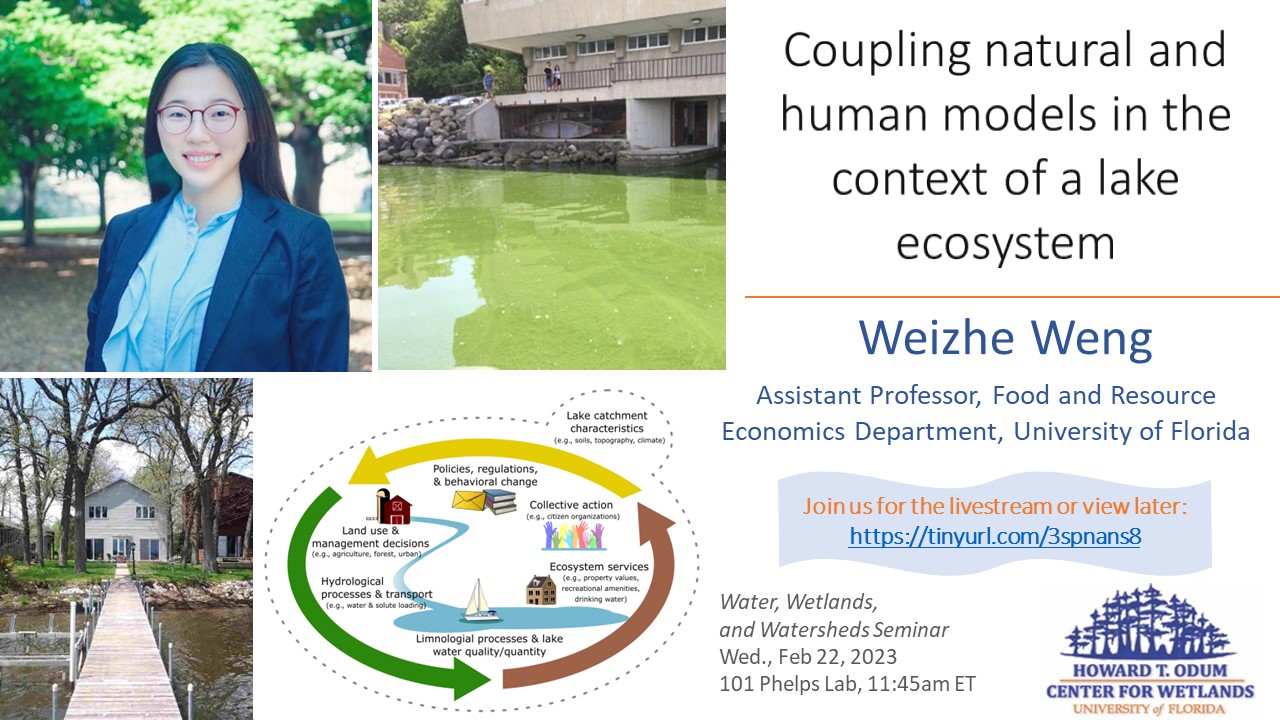
Weizhe Weng, Assistant Professor, Food and Resource Economics Department, University of Florida
Join us for the livestream February 22nd, 11:45am ET: https://t.co/nFl23xVzMv
(Please visit our YouTube channel main page for the stream if there are any issues with the direct link.)
ABSTRACT
Lakes support a myriad of ecosystem services that benefit humans and have quantifiable economic effects, including the provisioning of drinking water and recreational activities. These services can be compromised by poor water quality, which commonly occurs when lakes are impacted by excessive nutrient inputs from nonpoint source pollution such as phosphorus and nitrogen from agricultural runoff. Given the importance of the coupling between people and freshwater lakes, it is essential to create an integrated, multi-disciplinary tool that captures the reciprocal linkages between people and freshwater systems: human actions affect ecosystems, which in turn affect human well-being and future behavior. Using Lake Mendota (Madison, Wisconsin, USA) as a case study, we developed a novel, coupled natural and human systems (CNHS) model that captures how land-use decision making interacts with hydrological and limnological processes to transform nutrient loads into changes in lake water quality, and how altered water quality feeds back to human systems by affecting the amenities that people value. In this talk, I will describe the details of the CNHS modeling framework and the insights to advance lake management efforts to protect and improve water quality.
BIO
Weizhe Weng is an assistant professor in the Food & Resource Economics Department at the University of Florida. She holds a research and extension appointment and specializes in environmental and natural resource economics, valuation of ecosystem service, and water policy. Dr. Weng’s research program emphasizes the innovative use of economic and interdisciplinary frameworks to quantify the interactions between human and natural systems, evaluate potential policy outcomes, and provide a foundation to support science-based policymaking. Dr. Weng’s extension program is centered around water resources in Florida. Her current extension projects involve estimating the economic values of Florida’s water resources, building a cost-effective nutrient management program, taking a science-based approach to guide actions to transform agri-food systems towards green and climate resilient practices.
POSTCARD
